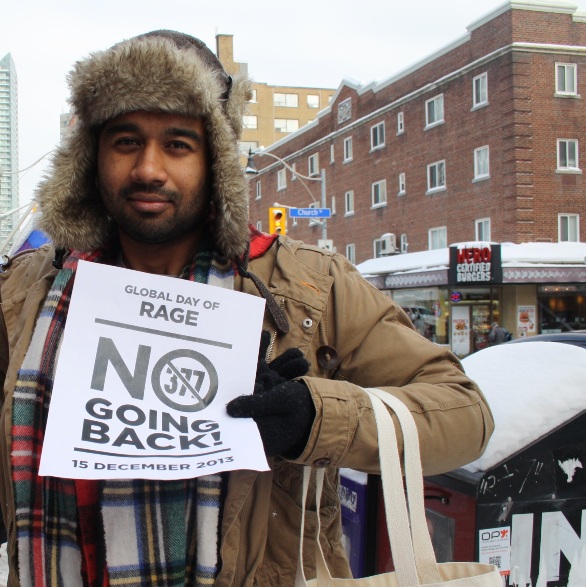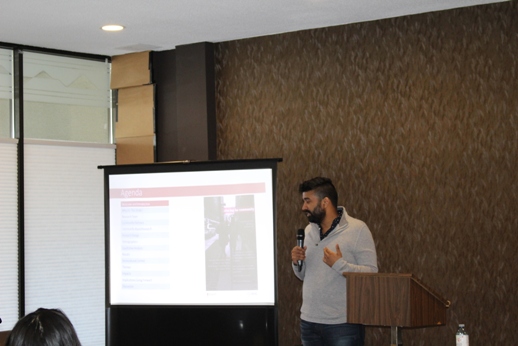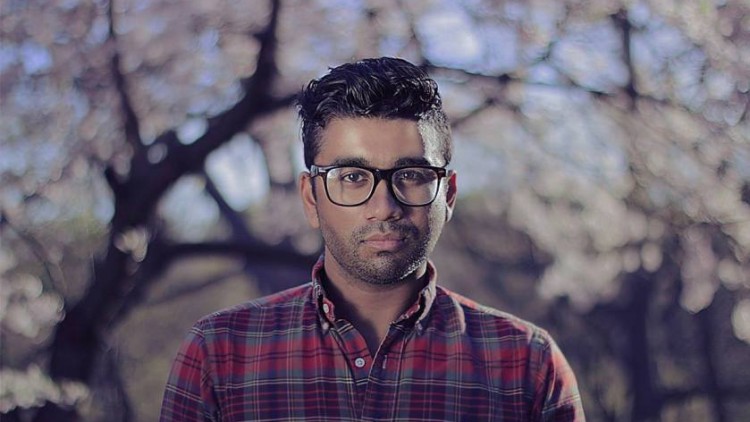My stapler is missing again. This happens every once in a while – too often if you ask me. When you work for a non-profit, resources are skim and it’s not unusual for people to “borrow” other people’s office supplies. I look across my desk and see the usual suspect: Ramraajh Sharvendiran, Men’s Health Coordinator and stapler thief extraordinaire.
I take back my stapler with little complaint because I know that it’s not the time to start a petty squabble. Generally, I lose these arguments anyway because Ram is possibly the most stubborn person I know, and would rather fight me forever than ever admit to any wrongdoing. But mostly I hold my tongue because Ram is prepping for a presentation in Vancouver on his study “Access, Identity and Men”, the first qualitative research study in Canada focused on South Asian gay and bi men.
Ramraajh was born at some point in the mid 1980s, or so I’m told. I wasn’t actually there being that I am considerably younger and only met the guy four years ago. All the stories I’ve heard about his childhood (and I have heard several) feature a small Tamil boy who never really fit in a primarily white suburb. As he got older, that sense of “otherness” deepened as he struggled with navigating his emerging sexuality and attraction to men. While the 90s were a time of great boy bands and phenomenal choker necklaces, mainstream queer Tamil role models were sorely lacking for a gay boy from North York.

Enter York University, where Ram`s involvement with the Trans Bisexual Lesbian Gay Allies at York (TBLGAY) sparked a passion for social justice issues. During his time at York, he spearheaded the development of a weekly radio program, Queer Current on CHRY 105.5 FM in Toronto. He produced and hosted the program for over 8 years which discussed issues of health and human rights as they relate to queer and trans-identified communities.
A series of random occurrences (the best kind!) led Ram to becoming the Men`s Health Coordinator at ASAAP, a role with its own unique challenges. His work has been crucial in busting the myth that gay and bi men only exist in White communities.
Queerness has existed in different forms in Tamil culture from pre-colonial times, and our sacred texts are peppered with examples of deities who are transgender or represent more than one gender identity. And yet so much of this rich history is forgotten in parts of the diaspora eager to push heteronormativity as the only option.
Ram has been successful in bringing together cultural, religious and community elements to build a movement that recognizes the diversity that exists both in the Tamil and Queer communities, while creating a space where both identities can coincide. Part of his work led him to develop a qualitative research study that painted a holistic picture of how South Asian men navigate queer identities, sexuality and sex. This work has been featured at national and international conferences and is the only Canadian study of its kind.

2015 saw Queer issues become a focal point for civil rights movements around the world. The world cheered on as the Supreme Court of the United States passed marriage equality, causing many of my friends and family to apply a rainbow coloured filter to their carefully selected profile pictures.
But there is still work to be done. Queer and trans people of colour continue to struggle with the structural violence that is enacted by larger systems, placing them at increased risk for mental and physical trauma that cannot be alleviated by the promise of a marriage licence.
Ram has repeatedly demonstrated his commitment to queer issues within the Tamil diaspora, using his voice to shed light on the struggles and strengths of a community that has historically been marginalized within the larger dialogue. His passion and expertise make it clear why your votes have named him one of TC’s Most Influential Tamils of 2015.
Related articles:
Seeking Gay Tamil Man
Ramraajh Sharvendiran
Tamil Studies Conference 2014 Presents: {Uravu}, Being Queer & Belonging Within Tamil Worlds

 Suruthi Ragulan
Suruthi Ragulan





